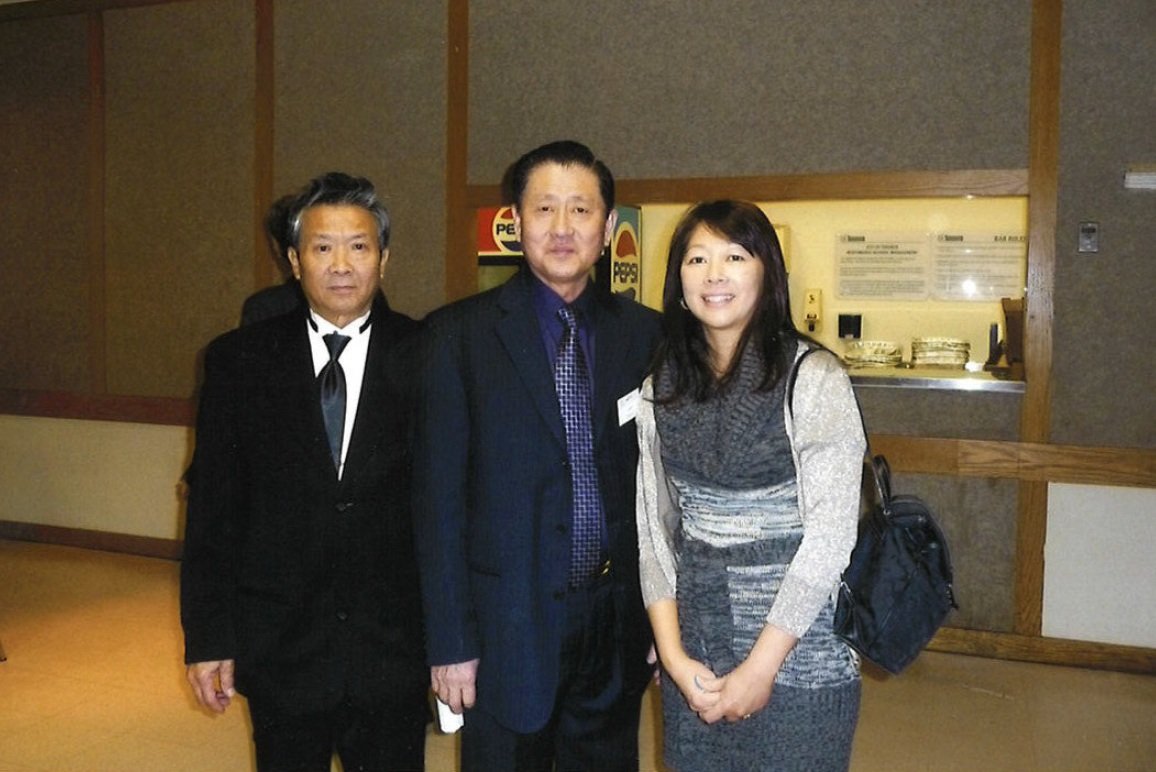Building a Community With the AIDCI
By Joy Ma
When I meet people during book talks for “The Deoliwallahs” I am often asked about the AIDCI, who they are, what they do. The Association of India Deoli Camp Internees 1962 (AIDCI) is a nonprofit based in Toronto, which was one of the locations for “Voices of Deoli.”
I first met members of AIDCI during the 50th anniversary in 2012, and in the years since have gotten to know some of them and their families. It’s a humbling discovery because every time I meet family friends who are members and people I haven’t met before I learn more about the Camp and more about myself through their recollections of my family in Deoli.
Bobby, Andy and Joy at the 50th anniversary in 2012.
In 2010, survivors of Deoli Internment Camp who had immigrated to Canada created the Association of India Deoli Camp Internees 1962. This group comprises people who were detained by the Indian government in a camp in Deoli, Rajasthan, after the 1962 Sino-Indian War. Led by President Ying Sheng Wong and Vice President Andy Hsieh, AIDCI works on raising awareness of the experience of the internees and on seeking an apology from the Indian government. To support the community of survivors AIDCI organizes events to commemorate the internment in Deoli Camp and preserve the history and culture of this community. They hope to share their experience and improve an understanding of the effects of incarceration.
President Bobby Wong Ying Sheng and Vice President Andy Hsieh
Its mission as stated on its website reads,
As a global alliance of the Deoli Internment Camp survivors and their families, the mission of AIDCI is to raise public awareness of their historical plight be developing a network of survivor contacts and by ensuring that those who tragically lost their lives at the camp are not forgotten.
AIDCI gathering in 2011
For years, survivors of Deoli Camp burdened by shame, anger and humiliation maintained a silence about their time in the camp. I met a person who was a teenager when he was imprisoned with his family and who had remained silent for 40 years until he returned to India to visit his home in Kampong. It was a cathartic emotional homecoming that was filled with anxiety and dread for the return to the home he had known and that perhaps would not welcome him back. With the passage of time and the passing years for this survivor and others, the sharp edges of the experience had softened enough for him and other survivors to find a way to tell their stories.
Some survivors spoke to me for “The Deoliwallahs”, bravely reliving their experience. My mother and I joined Ying Sheng and Andy to see the memorial they had created for the Camp survivors in a park in Ontario. In a large grassy knoll, three trees stand silent sentinels to the experience of the community. A simple plaque reads,
“In memory of the Chinese Indian internees of 1962 Deoli Internment Camp.
We, survivors, remember.”
“In memory of the Chinese Indian internees of 1962 Deoli Internment Camp. We, survivors, remember.”
Others told me snippets of how they felt privately. “Your family lived next to mine in Wing 4,” my new friend told me. A woman I met said she had held me, a baby who brought some normalcy to their hopeless situation. Yet others used names that they were not known by, still afraid of the ramifications of speaking out. “It’s better not to use my name.” was a woman’s reasoning. I understood remembering my family’s silence.
Ying Sheng Wong and Andy Hsieh have worked hard to build this community. To see their stories, watch our trailer.
Facebook: @voicesofdeoli
Twitter: @voicesofdeoli
Instagram: voices_of_deoli



